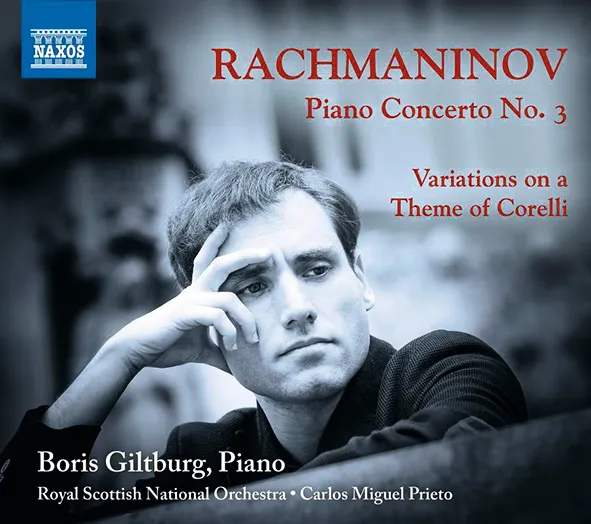
Rachmaninov Piano Concerto No. 3; Variations on a Theme of Corelli Boris Giltburg (piano); Royal Scottish National Orchestra/ Carlos Miguel Prieto Naxos 8.573630 61:59 mins
Incorporating the maximum variety of moods in such an epic composition as Rachmaninov’s Third Piano Concerto without in any way undermining the music’s cogency is a major challenge for interpreters. Although it goes without saying that technical mastery is absolutely essential in a work of such formidable difficulty, this goes for nothing if the long-term plan of each of its three movements isn’t clearly laid out. Boris Giltburg recognises this problem from the outset and delivers one of the most structurally lucid accounts of the Concerto that I’ve heard. Apart from his clear sense of direction and the highly responsive support from Carlos Miguel Prieto and the Royal Scottish National Orchestra, I also admire his capacity to create a sense of spontaneity in the narrative, particularly in those many passages where soulful lyricism unexpectedly gives way to playful frolics. But it’s his mastery of the work’s numerous climaxes that really impresses, especially notching up the intensity step by step but without ever forcing the tone. The first movement cadenza, for which Giltburg plays Rachmaninov’s original version, can sound rhapsodic and digressive in other hands, but Giltburg projects the music with compelling symphonic weight.
Apart from all these virtues, prepare to be dazzled by the sheer clarity of Giltburg’s fingerwork in such passages as the waltz section of the slow movement. Occasionally, the balance tilts perhaps too much in favour of the treble registers – indeed, there are moments where I wish Giltburg could have given us a richer and stronger sounding bass line. Whether this issue is exaggerated as a result of the recording remains unclear, but it certainly is not something I noticed in Giltburg’s extremely fine account of the Corelli Variations.
Erik Levi